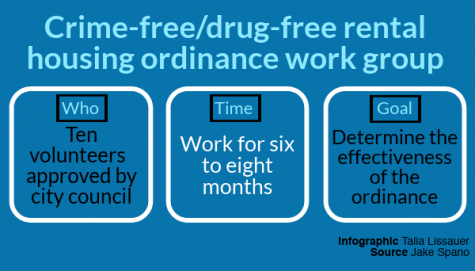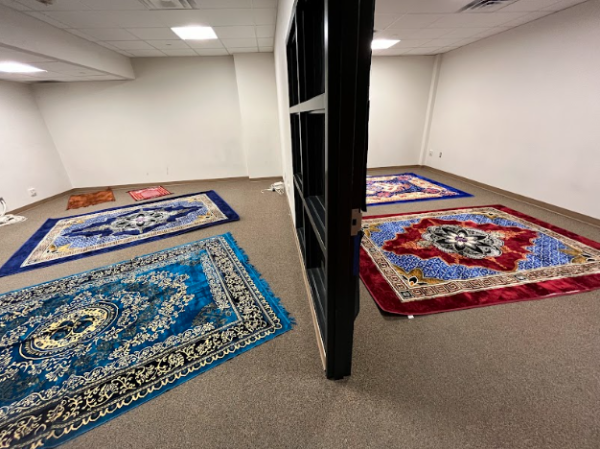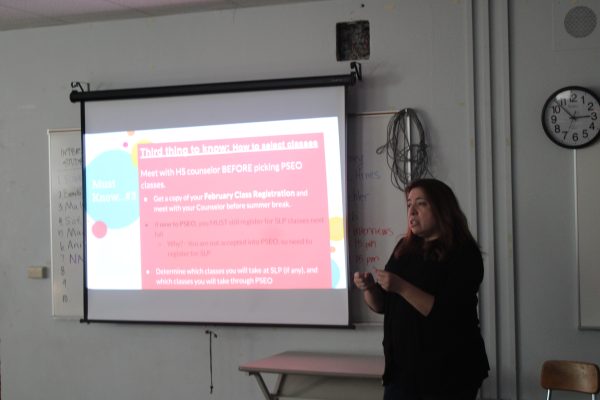Crime-free/drug-free housing ordinance under investigation
City council creates group to explore problems
City council member Anne Mavity talks about her opinions on the evicted before convicted board Jan. 14. This month they are conducting interviews for potential board member.
January 29, 2019
While talking about the crime-free/drug-free rental housing ordinance, Mayor of St. Louis Park Jake Spano, said “Evicted before Convicted” is not a true representation of the ordinance.
“We understand that being evicted from your apartment is a big deal,” Spano said. “Eviction before conviction is a misnomer, and led people to believe that we were kicking people out of their apartments even though the fact that we weren’t charging them with a crime was a deliberate decision to compound their problems.”
Sophomore Lauren Whiteman said that she would much rather carry an eviction than a conviction with her.
“I live in an apartment. If I was an adult and having to move out instead of getting (a conviction) on my permanent record, that would be much easier in the long run,” Whiteman said.
According to Spano, the city created a list of crimes that could lead to eviction to express the seriousness of certain violations.
“It’s not something the city entered into lightly, which is why there is a whole list of violations that are three strike violations, and more serious crimes (are) one strike violations,” Spano said.
City Council member Margaret Rog said council members have been speaking for others too much, and because of that St. Louis Park is going to get a group of volunteers to investigate how the ordinance is truly affecting people.
“The feeling has been that council staff and even police have been speaking for others,” Rog said. “The city is creating a workgroup to get feedback from people who are affected by this ordinance most directly.”

Spano said the plan to form a discussion group will take months to implement.
“City staff brought forward to us an outline of a public process that they imagine will take somewhere between six and eight months to form a workgroup made of volunteers,” Spano said.
According to Spano, City Council will be choosing who participates in the group.
“They will come back to us with some recommendations, and the council will sit down and make a decision about who will be apart of it,” Spano said.
Spano said his goals for the work group is for them to come back with enough information to come to a conclusion that will benefit the public in the best way possible.
“I want the public to have an opportunity to have their input impartial,” Spano said. “I want them to gather their information and come to us with what they feel are genuine observations based on their work.”
According to Rog, the most important people to talk to are those that have come in contact with the ordinance.
“The recognition was that to get good information, we really have to talk to the people that are most affected,” Rog said.
Whitman said in future situations where the ordinance is involved, she wants to make sure that both sides of the story are looked at before a conclusion is made.
“The work group should do their best to get both sides of the story, meaning the renter and the landlord,” Whiteman said. “I don’t want landlords to be taking advantage of the (ordinance).”
For more information about the city workgroup, visit the St. Louis Park city website.














